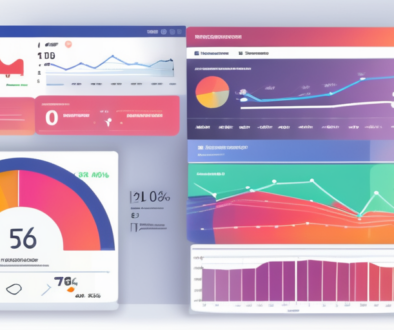Mastering Ecommerce Analytics: The Key to Unlocking Your Online Store’s Potential
Mastering Ecommerce Analytics: The Key to Unlocking Your Online Store’s Potential
In the fast-paced world of ecommerce, leveraging web analytics is not just an option; it’s a necessity for any business aiming to thrive. With the right ecommerce analytics tools and strategies, businesses can gain invaluable insights into customer behavior, optimize marketing campaigns, and ultimately drive growth and revenue. At Analytive, we understand the importance of data-driven decisions in the ecommerce landscape. This comprehensive guide explores the world of ecommerce analytics, offering actionable insights and highlighting top tools to enhance your online store’s performance.
The Importance of Ecommerce Analytics
Ecommerce analytics provides a detailed view of your online store’s performance, from visitor behavior to sales trends. By analyzing this data, you can identify opportunities for improvement, tailor your marketing efforts, and create a more personalized shopping experience for your customers. Key metrics such as conversion rate, average order value, and cart abandonment rate offer a snapshot of your ecommerce store’s health and guide strategic decision-making.
Top Ecommerce Analytics Tools to Transform Your Data into Insights
- Google Analytics: A versatile and widely used tool, Google Analytics offers deep insights into website traffic, user behavior, and conversion metrics. Its ecommerce tracking capabilities allow you to monitor sales data, product performance, and customer journeys.
- Shopify Analytics: For Shopify users, this built-in analytics tool provides a wealth of information specific to ecommerce operations. Track sales trends, customer demographics, and referral sources directly from your Shopify dashboard.
- Adobe Analytics: Offering advanced segmentation and real-time analytics capabilities, Adobe Analytics is ideal for ecommerce businesses looking for detailed insights and predictive analytics to forecast trends and customer needs.
- Kissmetrics: Focusing on individual customer behavior, Kissmetrics helps ecommerce businesses track the entire customer lifecycle, identify high-value customers, and optimize conversion funnels.
Leveraging Analytics to Optimize Your Ecommerce Store
Analyze Customer Behavior
Understanding how customers interact with your ecommerce site is crucial. Analytics tools can reveal which products are most popular, where customers spend the most time, and at what point they decide to leave without making a purchase. Use this information to streamline the user experience and reduce friction points in the buying process.
Optimize Marketing Campaigns
Ecommerce analytics allows you to measure the effectiveness of your marketing campaigns across different channels. By analyzing metrics such as conversion rate and marketing channel performance, you can allocate your budget more efficiently and focus on strategies that deliver the best ROI.
Improve Checkout Process
A smooth checkout process is vital for reducing cart abandonment rates. Analytics can help identify where customers drop off during checkout and test different variations of the checkout page to improve conversions.
Monitor and Boost Conversion Rates
Regular monitoring of your conversion rate is essential for ecommerce success. Use analytics to test different landing pages, product descriptions, and calls to action (CTAs) to find what resonates best with your target audience and drives sales.
Ecommerce Analytics Strategy: Best Practices
- Set Clear Goals: Define what success looks like for your ecommerce business and use analytics to track progress towards those goals.
- Use a Combination of Tools: No single analytics tool can cover all aspects of ecommerce analytics. Use a combination of tools to get a comprehensive view of your store’s performance.
- Regularly Review Your Data: Ecommerce is dynamic, and what works today might not work tomorrow. Regularly review your analytics data to stay on top of trends and adjust your strategies accordingly.
- Act on Insights: Data is only valuable if you act on it. Implement changes based on your analytics insights and continuously measure the impact to refine your approach.
Conclusion: Turning Analytics into Action
Ecommerce analytics is more than just numbers and charts; it’s the foundation of a successful online store. By understanding and applying ecommerce analytics, businesses can make informed decisions, enhance the customer experience, and drive significant growth. Whether you’re a small business just starting out or an established ecommerce giant, the right analytics strategy can unlock new opportunities and propel your business forward.
At Analytive, we’re committed to helping you navigate the complexities of ecommerce analytics. Embrace the tools and strategies outlined in this guide to harness the full power of your data, optimize your ecommerce store, and achieve unmatched success in the digital marketplace. Remember, in the realm of ecommerce, knowledge is power, and analytics is the key to unlocking that power.



